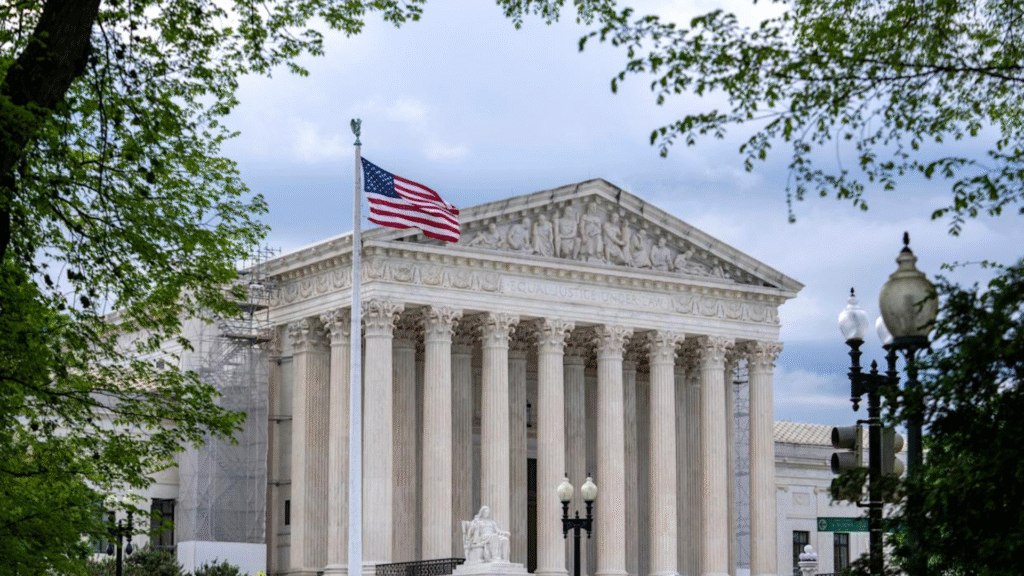
In a landmark 6–3 ruling this Friday, the Supreme Court issued a partial stay on sweeping nationwide injunctions previously imposed by district judges to block President Donald Trump’s executive order aimed at ending birthright citizenship.
The Court did not rule on the constitutionality of the executive order itself, but rather curbed the overreach of lower courts that claimed the power to halt federal policy implementation nationwide.
This critical, right-leaning decision directly strikes against the weaponization of nationwide injunctions—an often-abused legal tool used by liberal judges across the country.
These sweeping injunctions, critics argue, allow a single activist judge to block policies passed by democratically elected leaders, undermining public support for executive action and opening a Pandora’s box of judicial overreach.
The majority opinion, penned by Barrett, granted the Trump administration’s request to narrow the injunctions so they only apply to plaintiffs with legal standing, rather than halting implementation across the entire nation.
Barrett emphasized that judges do not possess the right to “wield universal injunctions as a cudgel to enforce their policy preferences on the country.” The ruling sends a powerful signal that the judicial branch should not override the express will of the people.
While conservatives view the decision as a triumph for clear, constitutionally limited judicial authority and a win for executive power, the liberal minority—led by Justice Sonia Sotomayor—expressed grave concerns.
Sotomayor, reading from the bench, warned ominously, “No right is safe in the new legal regime the Court creates.” She painted a dystopian future in which future presidents might exploit the decision to curb civil liberties, from firearms to religious freedoms. She argued that the ruling effectively reduces constitutional guarantees to “meaningful in name only” for non-plaintiffs.
Nonetheless, supporters of the Supreme Court ruling counter that nationwide injunctions were never designed by founding framers to empower a single district judge to halt federal law for all Americans.
This patchwork of piecemeal injunctions had morphed into a tool for orchestrated judicial activism, often fueled by coordinated plaintiff-filing strategies seeking sympathetic venues. The ruling restores balance by ensuring that individual applicants must demonstrate specific, personal harm and standing before federal courts.
Importantly, the Supreme Court gave the Trump administration the green light to proceed swiftly in building out the logistics for implementing the birthright citizenship directive.
While the order itself remains on pause for 30 days to allow for litigation, federal agencies are now authorized to allocate resources, draft regulations, and prepare for enforcement. This is a symbolic and practical breakthrough, giving the executive branch stronger footing to act on a core Trump 2024 campaign promise.
The ruling also carries long-term consequences that extend far beyond one policy. It empowers the presidency and Congress by ensuring government programs—not limited to immigration—won’t be arbitrarily derailed by rogue lower court rulings. From economic regulations to military decisions, federal policies will now enjoy stronger protections against judicial vetoes.
Still, the battle is far from over. As the Court did not weigh in on whether limiting birthright citizenship is constitutional, more litigation looms.
Legal teams on both sides will likely descend upon appellate courts, and ultimately back to the Supreme Court, with sweeping stakes for future executive-legislative power dynamics.
For now, the ruling delivers a major win for the Trump-era vision of a strong presidency, enforced rule of law, and pushback against unelected judicial intervention.
The real policy fight may just be beginning—but the Court’s decision decisively shifts the compass toward constitutional conservatism and restraint in federal judicial authority.

